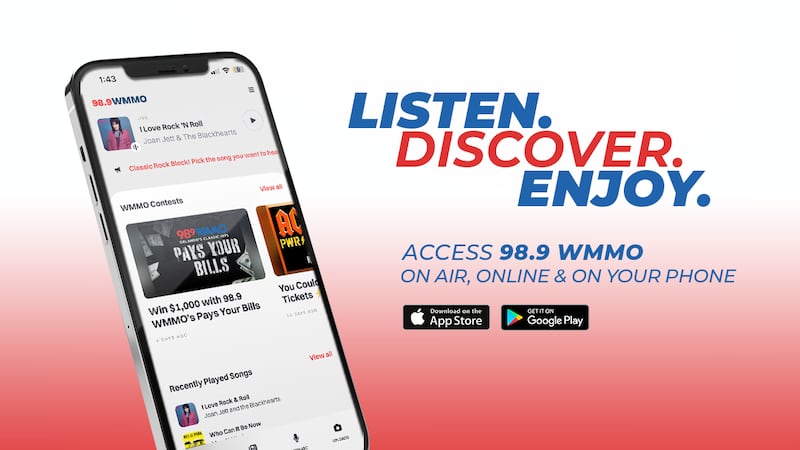Why is Gen Z embracing portfolio careers?
For decades, the default vision of a “career” looked a lot like a straight line: graduate, land a full-time job, climb the ladder, retire. But today’s young professionals are redrawing that picture entirely. Rather than anchoring themselves to one employer, many are building what’s known as a portfolio career: juggling multiple roles, projects, and clients simultaneously.
The shift to portfolio careers isn’t about restlessness or side hustles. It’s about reimagining work in a way that values flexibility, autonomy, and personal convictions over traditional notions of job security. And it’s reshaping the workforce in real time.
The rise of portfolio careers for Gen Z
Research conducted in the fall of 2023 from Upwork, an online marketplace for hiring skilled freelancers, showed that 53% of Gen Z workers said they were already working full-time hours on a variety of freelance projects—not surprising, as 70% prioritized flexibility and autonomy above steady paychecks and formal titles. Gen Z continued to redefine how it works through portfolio careers in 2024 and is still doing so today.
The evidence points to a foundational shift in how younger workers approach their careers—and it's one that businesses and professionals alike will need to understand and adapt to.
The 4 forces fueling Gen Z’s portfolio career movement
Gen Z didn’t arrive at the portfolio career model by accident. A combination of societal shifts, technological advances, and lived experiences has shaped their expectations—and opened doors that weren’t available to previous generations. Our research identified four key drivers behind this changing mindset.
1. Flexibility
The pandemic permanently disrupted how we think about work schedules and locations. For Gen Z, rigid 9-to-5 office jobs often feel outdated; they've seen how well options like remote work can be for businesses. Today, more than 60% of Gen Z workers say that inflexible work arrangements are a deal-breaker.
Recent surges in remote work have proved that productivity doesn't have to be tied to a desk, opening up access to jobs far beyond one’s immediate geography. That freedom is now a minimum expectation for dedicated portfolio careerists.
2. Technology
The rise of high-speed internet and digital platforms has made multiclient work—and building different sources of income—more accessible than ever.
Work marketplaces connect freelancers with clients around the world, and platforms like Etsy and even social media allow more self-employed creators to monetize their art, technical skills, and niche interests—all without a traditional employer. Earning potential and financial stability is no longer tied to full-time employment with a single company.
3. Values
Gen Z is the most diverse generation to yet enter the workforce, and they expect to be able to reflect their identities and priorities in their work. Whether they’re passionate about environmental advocacy, creative expression, or social justice, Gen Z wants professional experiences that align with their personal values.
Working with multiple clients, either in lieu of a single full-time role or through part-time jobs and side hustles that take place after their day job ends, gives these young workers greater control over their professional and personal fulfillment.
4. Economics
Gen Z's outlook has also been shaped by economic volatility—from the Great Recession to the pandemic and growing student debt. Many members of Gen Z see portfolio work as a hedge against financial risk. Instead of relying on a single employer for financial security, they spread that risk across multiple income sources.
For some, portfolio work is a preference; for others, it’s a survival strategy.
Benefits and tradeoffs of the portfolio approach
Portfolio careers aren’t without their own set of risks and challenges, though. Understanding both sides of this type of work is essential for people of any age—and for the companies interested in attracting and retaining freelance talent.
What’s working
- Faster skill development. By juggling different roles or projects, Gen Z professionals with portfolio careers can accelerate their learning. Some projects reinforce existing skill sets, while others push them into new territory and force them to figure out how to use transferable skills in new ways.
- Personal brand ownership. Building a portfolio means building a brand. Many freelance or project-based workers gain reputations across different industries and platforms, showcasing their value beyond a single company or title.
- Lifestyle flexibility. Remote, flexible work allows people to prioritize travel, passion projects, or personal well-being without compromising income in the pursuit of work-life balance.
What’s harder
- Lack of traditional benefits. In the U.S., freelancers without employer-sponsored healthcare, paid leave, or retirement plans must self-manage these essential protections—and budget accordingly.
- Burnout risk. Managing multiple clients or projects requires strong boundaries and reliable systems. Without them, working too many hours is an easy mistake to make.
- Potential isolation. While flexibility is freeing, some portfolio workers miss the casual community of an office, or have trouble finding mentors. Digital tools and coworking spaces can help to establish a deeper sense of connection with other people in a similar industry—as well as other entrepreneurs and portfolio workers.
What portfolio work means for employers
As Gen Z reshapes the labor market, employers sticking to traditional models may face mounting challenges—not just in hiring, but in retaining and engaging top talent, too. Companies that want to stay competitive will need to develop their strategy across three key dimensions.
1. Talent acquisition
If your ideal candidate expects flexibility and autonomy, a rigid job description and in-office requirement might cause them to look for work elsewhere. Businesses may need to rethink full-time headcount as the only solution. Instead, employers should consider building blended teams: a core of full-time employees supported by a network of freelancers brought in as needed for specialized projects.
Such an approach doesn’t mean replacing staff with independent contractors—it means scaling talent to match changing business needs, while also aligning with how the next generation prefers to work.
2. Worker retention
Traditional career ladders may not hold much appeal for Gen Z, who often prioritize variety, skill growth, and purpose. Companies can create rotational programs that offer the same dynamism and new opportunities found in freelance work, without requiring employees to leave the organization.
3. Workplace culture
Gen Z expects more than a paycheck. Remote work options, flexible hours, and purpose-driven missions are no longer perks—they’re expectations.
To meet the moment, organizations need to invest in technology as well as structural and cultural change. That means redesigning how work is organized and evaluated, and ensuring flexibility is baked into the operating model ... not bolted on as an exception.
Getting started: Small steps, big shifts
The shift toward portfolio careers doesn’t require organizations—or individuals—to overhaul everything overnight. In fact, the most sustainable changes often start small. Whether you’re leading a team or managing your own career, the key is to begin with intentional experiments that reflect the future you want to build.
For companies
- Modularize projects. Break down large initiatives into smaller, clearly defined parts that can be tackled by freelancers or rotating team members. Tools like Kanban boards or shared project management platforms make remote work easier to manage and scale.
- Build an internal talent marketplace. Let employees interested in gaining new skills explore cross-functional roles or different challenges within the organization. Doing so can improve retention and also surface hidden talents and growth opportunities.
- Foster skill-sharing. Encourage employees to teach and learn from each other across departments. Doing so keeps the work environment dynamic and aligns with Gen Z's appetite for variety and development.
For individuals
- Explore without leaping. If you're curious about portfolio work but not ready to go all-in on a career change, test the waters through side projects, freelance platforms, or skill-building initiatives.
- Map your options. Create a roadmap for transitioning into a portfolio career. Identify the skills you want to develop, the clients or industries you're interested in, and a timeline that makes sense for you.
- Bring variety into your current role. Even within a traditional job, you can seek out cross-functional work, side initiatives, or professional development opportunities that mirror the dynamism of portfolio work.
No one model fits everyone—but given the data, you might want to ask: How could a more flexible, diversified approach to work strengthen your resilience, fulfillment, or business outcomes?
The future isn’t fixed—it’s flexible
As Gen Z redefines the meaning of career success, the workforce is becoming more fluid, interconnected, and opportunity-rich. Whether you’re a business leader navigating a shifting talent landscape or a professional rethinking your own path, embracing the portfolio mindset opens new doors.
Freelancers are connecting with innovative companies to solve critical problems, push boundaries, and build meaningful career portfolios—on their terms.
Upwork is not affiliated with and does not sponsor or endorse any of the tools or services discussed in this article. These tools and services are provided only as potential options, and each reader and company should take the time needed to adequately analyze and determine the tools or services that would best fit their specific needs and situation.
This story was produced by Upwork and reviewed and distributed by Stacker.







